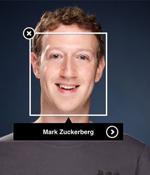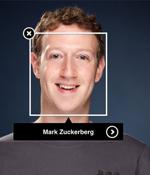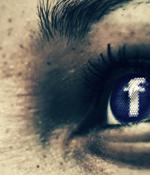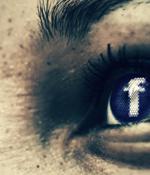Security News

Meta, the company formerly known as Facebook, announced Tuesday that it took action against four separate malicious cyber groups from Pakistan and Syria who were found targeting people in Afghanistan, as well as journalists, humanitarian organizations, and anti-regime military forces in the West Asian country. The Pakistani threat actor, dubbed SideCopy, is said to have used the platform to single out people with ties to the Afghan government, military and law enforcement in Kabul.

At breakfast, she was convinced either Facebook or Google was listening to her the previous night. You see, Facebook knows my mother-in-law and I are friends on the platform.
![S3 Ep58: Faces on Facebook, scams that pose as complaints, and a Kaseya bust [Podcast]](/static/build/img/news/s3-ep58-faces-on-facebook-scams-that-pose-as-complaints-and-a-kaseya-bust-podcast-small.jpg)
Crooks combine a new social engineering scam with a new way of packaging malware. Oh! No! How to block radio communications in a land with no hills.

Facebook's newly-rebranded parent company Meta on Tuesday announced plans to discontinue its decade-old "Face Recognition" system and delete a massive trove of more than a billion users' facial recognition templates as part of a wider initiative to limit the use of the technology across its products. The Menlo Park tech giant described the about-face as "One of the largest shifts in facial recognition usage in the technology's history."

Facebook's newly-rebranded parent company Meta on Tuesday announced plans to discontinue its decade-old "Face Recognition" system and delete a massive trove of more than a billion users' facial recognition templates as part of a wider initiative to limit the use of the technology across its products. The Menlo Park tech giant described the about-face as "One of the largest shifts in facial recognition usage in the technology's history."

We will shut down the Face Recognition system on Facebook as part of a company-wide move to limit the use of facial recognition in our products. That was a sort-of two way street, helping people who actively wanted to promote themselves on Facebook to help Facebook itself target them with ads.

Facebook announced today that they will no longer use the Face Recognition system on their platform and will be deleting over 1 billion people's facial recognition profiles. Facebook's Face Recognition system analyzes photos taken of tagged users and associated users' profile photos to build a unique identifier or template.

Facebook announced today that they will no longer use the Face Recognition system on their platform and will be deleting over 1 billion people's facial recognition profiles. Facebook's Face Recognition system analyzes photos taken of tagged users and associated users' profile photos to build a unique identifier or template.

Facebook has sued a Ukrainian national for allegedly harvesting and selling personal data describing 178 million of the Social NetworkTM's users - actions it says violates the service's terms of service. The suit alleges that Alexander Alexandrovich Solonchenko created millions of virtual Android devices, each with a different phone number, and used them to deliver automated requests to Facebook systems using the Messenger app.

The official Facebook page of a destroyer-class Navy warship, the USS Kidd, has gone rogue: Someone has taken over the page in order tostream Age of Empires play. The hijacked page of the warship, which finished up its latest active deployment in late September, then posted a joyful "Hahahahaha" and commenced four hours of live Age of Empires action.